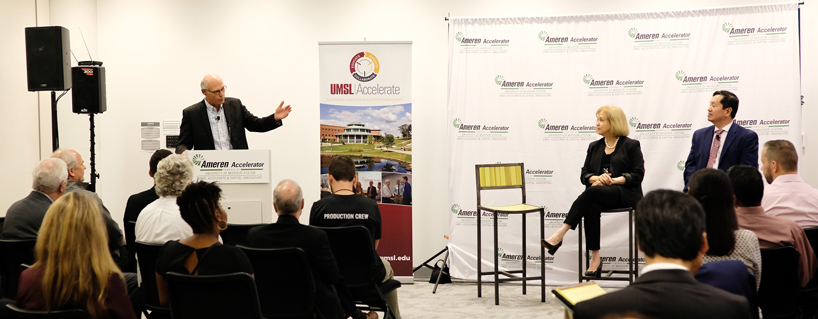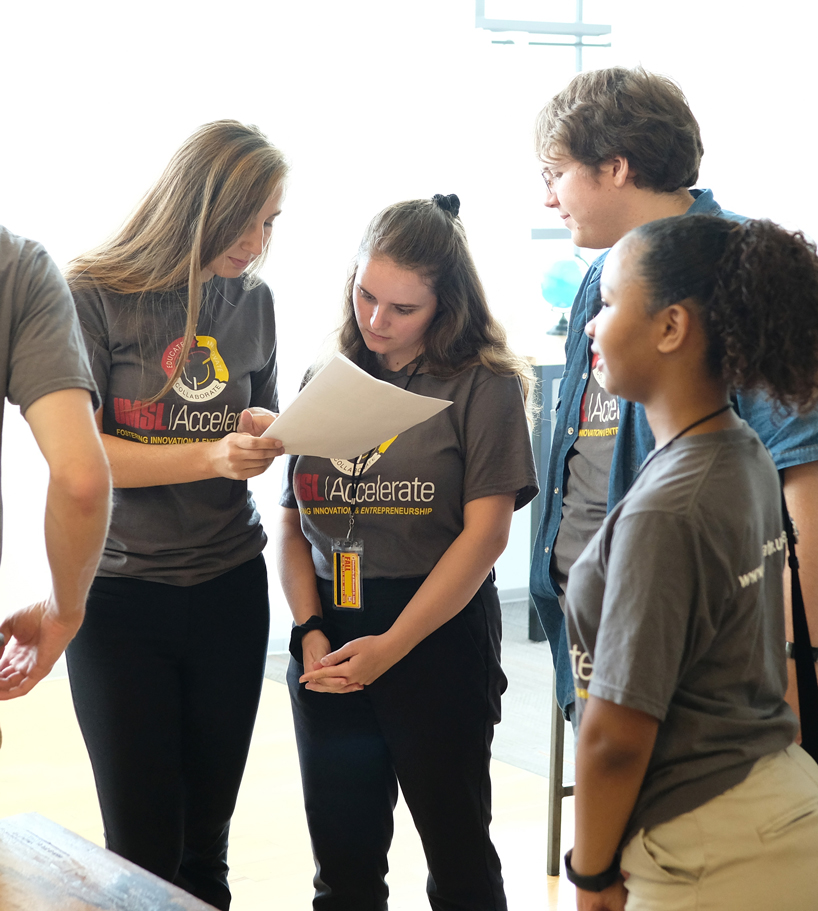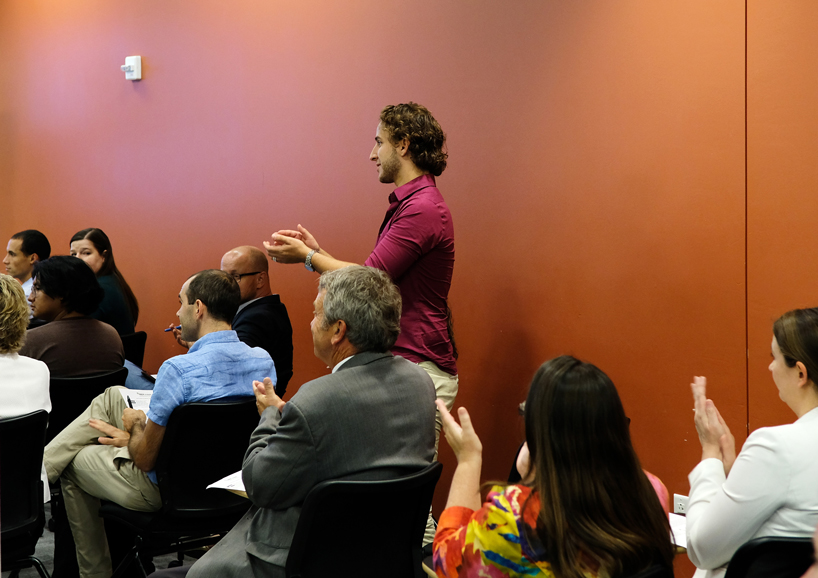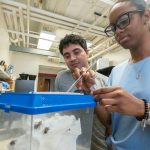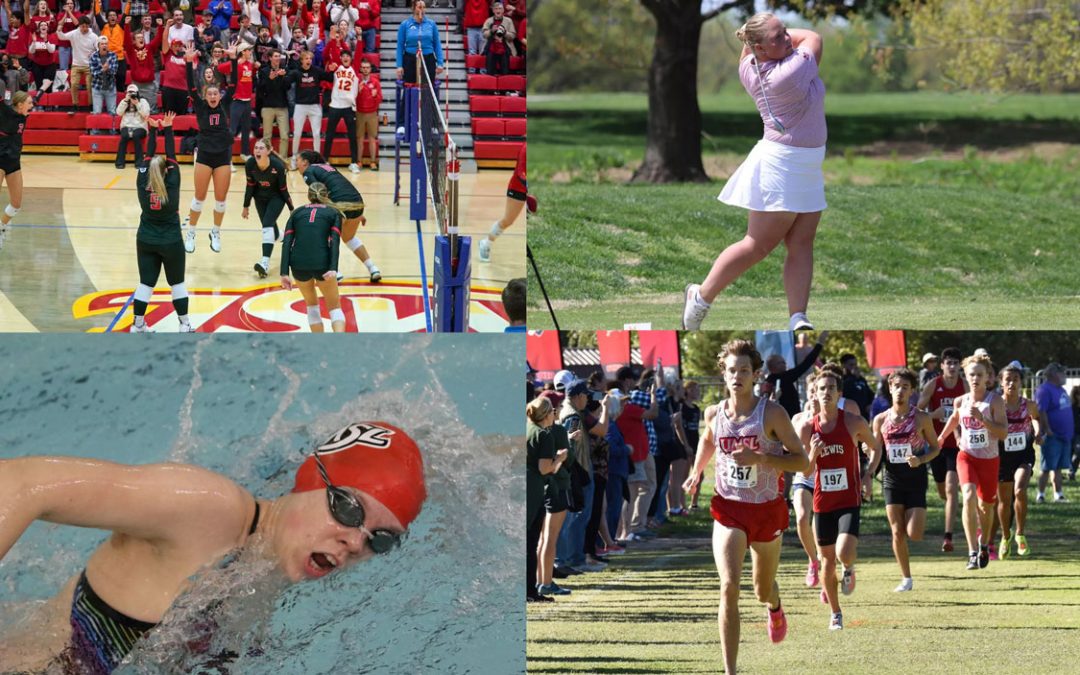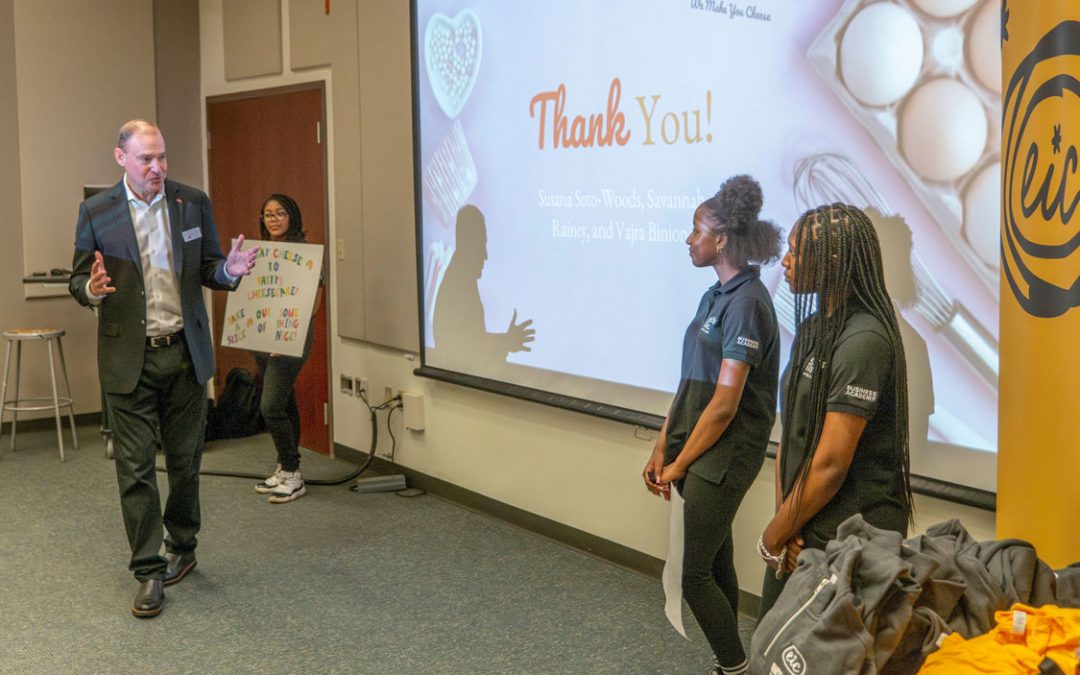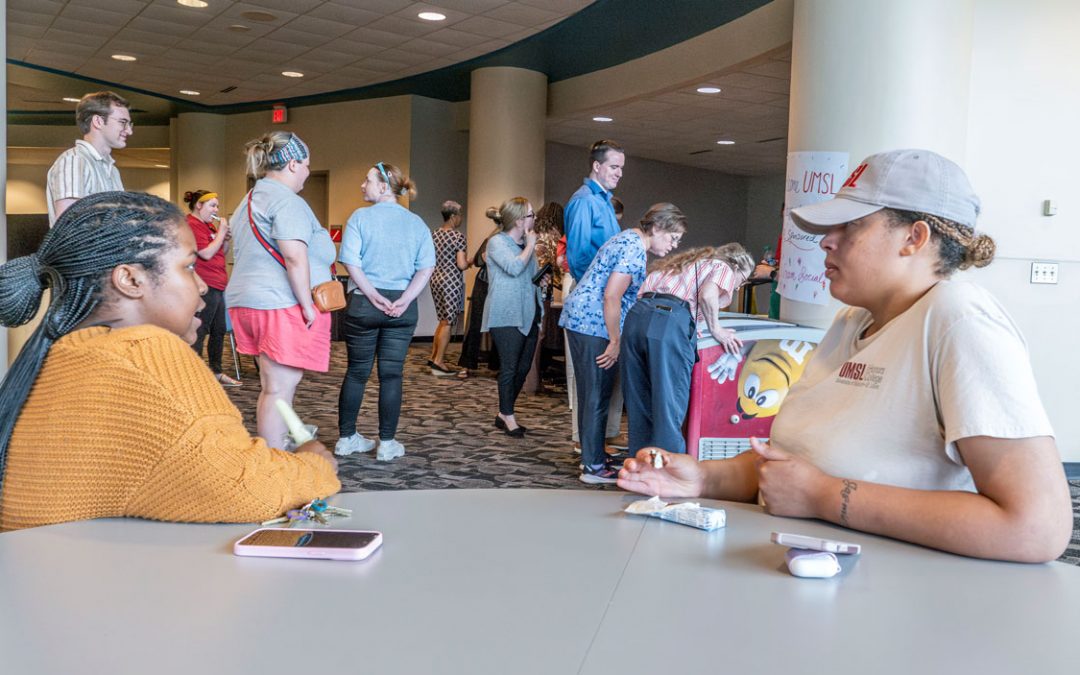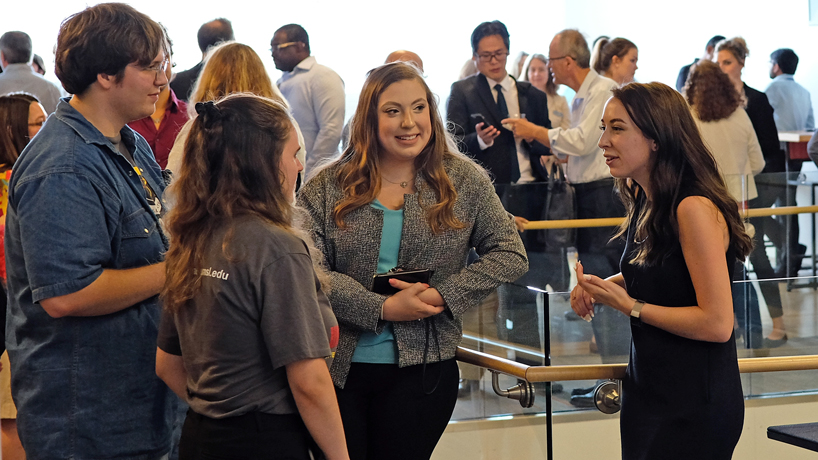
UMSL students interning in the third year of the Ameren Accelerator program speak to Bailee Warsing (at right), a senior liberal studies major and also a former intern, after an event to announce the program’s third cohort last Wednesday at CIC St. Louis. Warsing’s experience as an intern helped her land a full-time position with Ameren working on user experience product design. (Photos by Steve Walentik)
More than 100 people, including St. Louis Mayor Lyda Krewson and University of Missouri System President Mun Choi, filled the Havana Room at CIC St. Louis Wednesday afternoon as the six startups chosen to be part of the Ameren Accelerator’s third cohort were revealed.
Attendees heard from the leaders of those companies – Hexalayer, ClearFlame Engines, SHYFT Power Solutions, Eden GeoTech, Ovon and Allumia.
But first, Ameren Chairman, President and CEO Warner Baxter took a few minutes to reflect on the successes this first-of-its-kind partnership among Ameren, UMSL Accelerate, the University of Missouri System and Capital Innovators has already seen in its first two years.
He did not limit his remarks to talk of the companies that took part in the program and are now growing on their own.
Ameren CEO Warner Baxter speaks about some of the successes from the first two years of the Ameren Accelerator program as Mayor Lyda Krewson and University of Missouri System President Mun Choi look on.
“What this program is also about is to give students the opportunity to be exposed to the energy sector, to give them the opportunity to be exposed to entrepreneurship,” Baxter said.
Listening intently at the back of the room were the University of Missouri–St. Louis students who make up the new crop of interns selected to work with the fledgling enterprises.
The interns receive $3,000 for taking part in the 12-week program, but that was hardly the only incentive for students such as senior economics major Hannah Drury.
“I wanted to be an intern because the idea of clean energy was definitely fascinating to me, and I love the entrepreneurial side,” Drury said. “I’ve had business ideas in the past, so getting a little experience on both sides is really exciting. My professor, Lea-Rachel Kosnik, is an environmental economist, and she’s kind of the one that inspired me to go into economics in the first place. The environmental side was kind of a huge attribute to it all.”
Interns such as Hannah Drury (at left) will spend 12 weeks working with the six startups chosen to be part of the third Ameren Accelerator cohort.
She’ll be working with Allumia, a Seattle-based company that provides energy efficient lighting upgrade. The company meters the new lighting, tracking the energy savings and billing for a portion of the savings.
Adam Palmer, a senior majoring in mechanical engineering as part of the UMSL/Washington University in St. Louis Joint Undergraduate Engineering Program, applied to be an intern after taking UMSL’s course in Experiential Entrepreneurship.
“That class was just an eye-opener for me,” he said. “It’s unlike any other class I’ve taken. It actually applied to a real-world situation. It can get you into doing real things quicker. It really just made me want to get involved with the professors, with the school, with the classmates.
“After that class was over, I was wondering what I could do to continue getting involved and meeting new people, and that’s when I saw the opportunity to join this program.”
He’ll be working with Eden GeoTech, which is based in Somerville, Massachusetts. The company is developing waterless and injection-free reservoir stimulation technology that can replace fracking to eliminate unwanted effects. Palmer is hoping the experience will help him learn new skills in coding, math and geophysics.
At Wednesday’s event, Drury, Palmer and the other interns were reminded of the way students have already benefitted from being part of Ameren Accelerator over the past two years.
Baxter recognized Alex Zvibleman, a member of the first class of interns, who last spring became the first student to receive UMSL’s new degree in entrepreneurship. He is in the process of opening his own coffee shop with funding won in the UM System’s first Entrepreneur Quest Student Accelerator.
Warner Baxter acknowledged Alex Zvibleman, an intern with the first Ameren Accelerator cohort, who last spring became the first UMSL student to graduate with a BSBA with an emphasis in entrepreneurship.
Baxter also acknowledged senior Bailee Warsing, a senior working toward a degree in liberal studies with a dual focus in computer science and business. Warsing, another member of the inaugural group of interns, anticipates graduating in December but has already landed a full-time job with Ameren working on user experience product design.
“Being an intern in this program has opened so many opportunities for me,” Warsing said. “Really, the greatest value has come from the people I’ve met and the relationships I’ve been able to build from UMSL Accelerate.”
Dan Lauer, the founding executive director of UMSL Accelerate, wants more students – including ones not yet on campus – to follow that same path to success. And ultimately, he doesn’t think it needs to only be in the energy sector.
“Why not health-tech, fin-tech, ag-tech?” Lauer said. “UMSL, we can do three or six of these a year and be the facilitators of these accelerators. Think about the faculty engagement in research, the alumni engagement in mentoring, the student engagement in interning. It’s a really clever model that I think moves us farther faster. I think it differentiates us in the world, and in the end, I want new students to come here first.”

